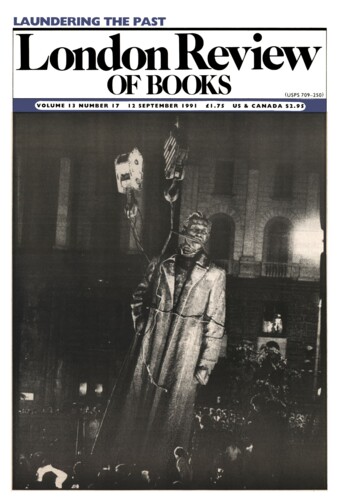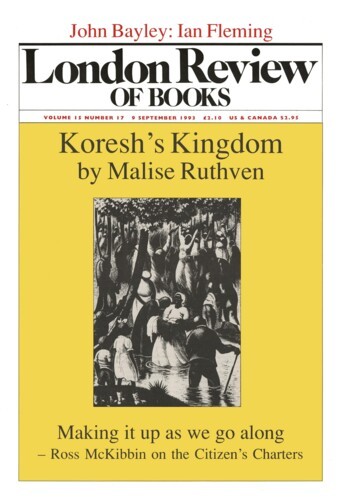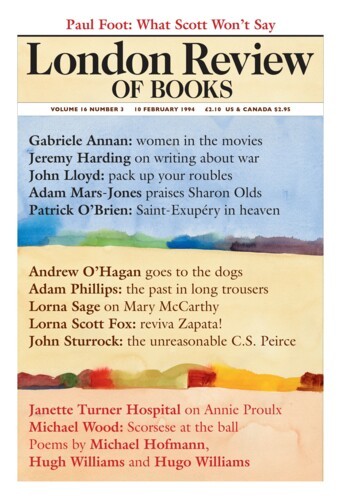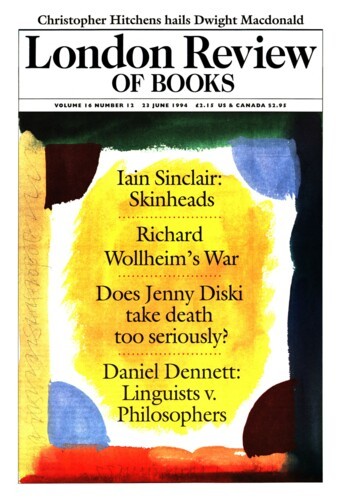James MacGibbon
James MacGibbon left his Edinburgh school to work in publishing and continued to do so with two breaks (a brief frolic in advertising and the war years) until he retired in 1984.
Letter
Henry Reed’s many friends and admirers must all be obliged to Jon Stallworthy for his concise biography of Henry (LRB, 12 September) and for ‘L’Envoi’ (LRB, 12 September). He mentions the poet’s ‘staggering memory’. Here is an example. Henry, knowing he needed some kind of psychiatric help, had read and admired the works of Melanie Klein (‘Eine Kleine Nachtmusik’ was the felicitous...
Letter
Henry lets her have it
12 September 1991
Henry Reed’s many friends and admirers must all be obliged to Jon Stallworthy for his concise biography of Henry (LRB, 12 September) and for ‘L’Envoi’ (LRB, 12 September). He mentions the poet’s ‘staggering memory’. Here is an example. Henry, knowing he needed some kind of psychiatric help, had read and admired the works of Melanie Klein (‘Eine Kleine Nachtmusik’ was the felicitous...
Letter
Small Fish
9 September 1993
In Frank Kermode’s review of Lord Goodman’s memoirs (LRB, 9 September) there is no mention of this unusual solicitor’s work on behalf of his unimportant clients – inevitably, as Lord Goodman, in his book, is concerned with bigger affairs. I had two experiences with him. The first was when he was acting on behalf of a wealthy client against me. His letters were so friendly that I sensed he was...
Letter
Broad-Minded Kleinians
10 February 1994
The trouble for the layman when reading about psychoanalysis is that so much of the theorising is obfuscating, however clear it may be to the professional. I was puzzled by Adam Phillips’s review of books by Christopher Bollas and Malcolm Bowie (LRB, 10 February). What does he mean when he writes: ‘For the patient in psychoanalysis the most disabling insights are the ones he cannot forget?’ If...
Letter
Fifty Years On
23 June 1994
Richard Wollheim’s account of his war experiences (LRB, 23 June) is moving and masterly. His initial pacifism, his subsequent cool courage and the closing comment on whether ‘the haphazard killing’ was worthwhile without an eventual ‘change of heart’ says all that needs to be said about the futility of war. There is much else in the article about how war dulls human reaction to brutality....
Read anywhere with the London Review of Books app, available now from the App Store for Apple devices, Google Play for Android devices and Amazon for your Kindle Fire.
Sign up to our newsletter
For highlights from the latest issue, our archive and the blog, as well as news, events and exclusive promotions.




